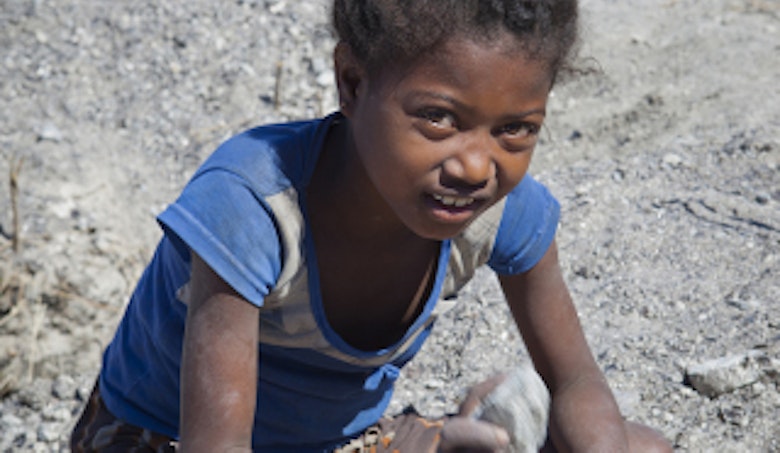Terre des Hommes warns of a dramatic increase in child labour as a result of the Corona pandemic
On the occasion of the World Day against Child Labour, Terre des Hommes issues a warning that the Corona pandemic will lead to a dramatic increase in child labour. For millions of children, the pandemic means hunger, exploitation and the end of educational opportunities.
Children's vulnerability before COVID-19
Even before the Corona pandemic:
- Children were disproportionately affected by poverty, with 386 million children living with under 1.90 US dollars per day. Children and adolescents under the age of 18 make up a third of the world’s population, but 48 percent of the people living in poverty.
- According to the International Labour Organization (ILO), 152 million children worldwide are involved in child labour, 73 million of them in one of the worst forms of child labour (such as slavery, bonded labour, dangerous work, sexual exploitation).
- 263 million girls and boys of school age worldwide were unable to attend
school.
Already disadvantaged children particularly at risk
Although there is still no global overview of the number of children who have to work during and after the lockdowns, the United Nations estimates that an additional 66 million children are at risk of extreme poverty as a result of the Corona pandemic.
Terre des Hommes warns that the economic crisis resulting from the Corona pandemic will force several million children worldwide into exploitative working conditions.
Children who are already disadvantaged are particularly at risk: poor and neglected children, street children, girls, refugee children and children of migrants, children in crisis regions and children without parental care.
Visible increase in child labour
Terre des Hommes partner organisations are reporting a visible increase in child labour in many countries in Africa, Asia and Latin America. In large cities there are more children who are begging. On plantations and farms, schoolage children work with their parents and sell vegetables or fruit in the streets. In the Philippines, the demand for children are forced into sexual exploitation online is increasing. Europol reports that overall the demand for child sexual abuse material on the internet has increased since the beginning of the lockdowns.
Bonded child labour
In India, the country with the highest number of child workers (in absolute figures), the situation is precarious. Families are being pushed into further poverty by the lockdown and children are bearing the brunt - for example, families, especially from discriminated groups, are having to turn to unscrupulous money lenders where, often, the child of the family has to work to pay off the debts.
Out of school without food
According to UNESCO, 1.5 billion students in 188 countries were unable to attend school during lockdowns in May. The school closures acutely contribute to malnutrition and hunger as many children are losing the most important and often only daily meal. According to the World Food Programme, at least 365 million children are currently affected.
Terre des Hommes: Give priority to the needs of children
Terre des Hommes demands that national governments, the European Union and the international community give priority to the needs of children in their Corona aid programmes.
- The opening of schools after the lockdowns should be accompanied by nationwide reintegration campaigns to prevent children from dropping out of school.
- Food or direct aid to families in need is indispensable in the acute phase and to prevent negative medium and long-term consequences, such as child labour.
- Local authorities must work with farms in the formal and informal sectors to end the occurrence of child labour. Internationally operating companies must also be particularly vigilant in scrutinising their supply chains to detect and end child labour. Terre des
Hommes encourages companies not to immediately leave areas and production sites where child labour have been identified in their supply chains but – instead – to engage actively to improve the situation. - In view of the medium-term consequences of the crisis, long-term and structure-building development measures must not be scaled back. Social security and education systems must be strengthened.

